The Benefits of Inbound Marketing for Small Businesses
Inbound marketing is a cost-effective and efficient approach to attracting and engaging potential customers to your business. Small businesses, in particular, can significantly benefit from this approach as it allows them to level the playing field with larger companies. In this blog, we will explore the various benefits of inbound marketing for small businesses, including increased brand awareness, improved customer engagement, higher lead conversion rates, and more significant return on investment. By the end of this article, you'll understand why inbound marketing should be a crucial part of your marketing strategy if you're a small business owner looking to grow your business.
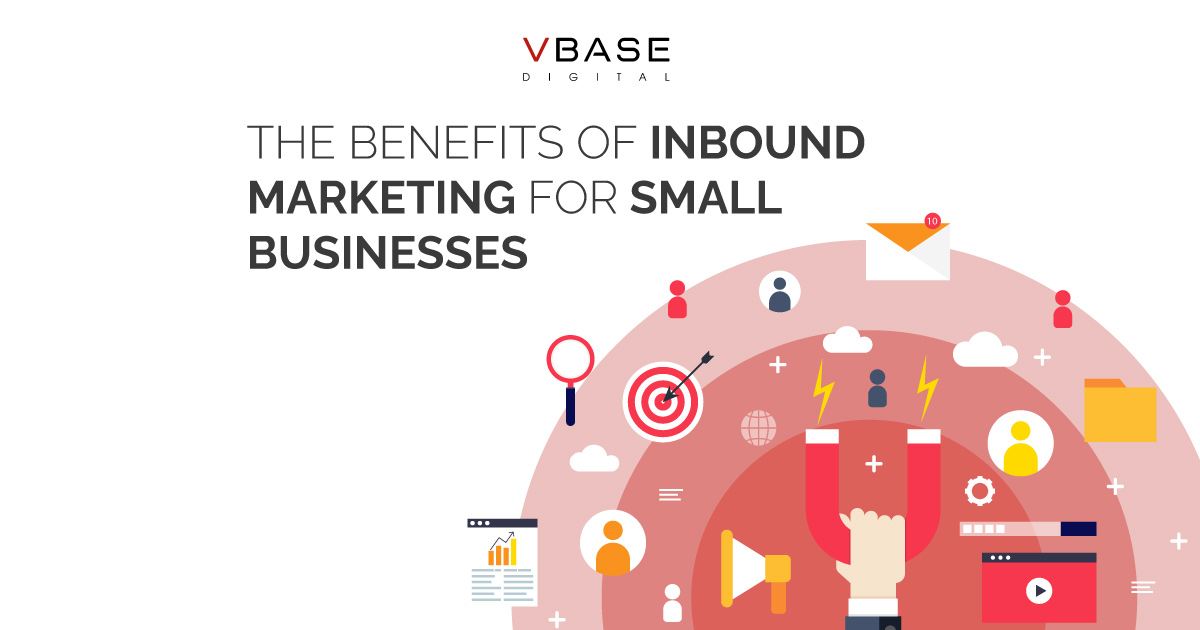
Introduction
Definition of Inbound Marketing
Inbound marketing is a strategy that aims to attract, engage, and delight customers by creating valuable content and experiences that are tailored to their specific needs and interests. Unlike outbound marketing, which is focused on pushing a message out to a broad audience, inbound marketing is about attracting potential customers to your business through the creation of helpful, informative content. This content can take many forms, such as blog posts, social media updates, videos, e-books, and webinars.
Inbound marketing is based on the idea that people are more likely to engage with a brand that provides them with helpful information and valuable experiences. By providing this type of content, businesses can build trust and establish themselves as thought leader in their industry. As a result, potential customers are more likely to seek out their products or services when they are ready to make a purchase.
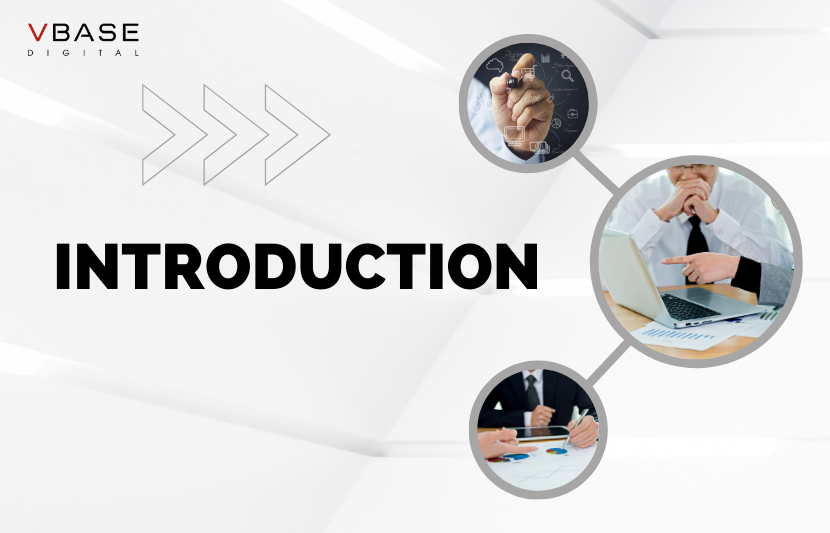
Importance of inbound marketing for small businesses
With limited budgets, inbound marketing can be a cost-effective way for small businesses to attract new customers and build brand awareness. Dissimilarly, to traditional marketing methods that require a significant investment in advertising and promotion, inbound marketing relies on creating valuable content that can be shared organically through social media and other online channels.
Inbound marketing also allows small businesses to target their audience more effectively. By creating content that is tailored to the specific needs and interests of their target audience, businesses can attract customers who are more likely to be interested in their products or services. This results in higher-quality leads and a greater likelihood of converting those leads into paying customers.
In addition to being cost-effective and targeted, inbound marketing is also measurable. With the use of analytics tools, small businesses can track the performance of their content and make adjustments to their strategy based on what is working and what is not. This allows them to optimize their marketing efforts over time and achieve better results.
Understanding Inbound Marketing
Inbound marketing is a customer-centric approach that attracts, engages, and delights prospects by providing them with valuable content that solves their problems. In this section, we will explore the key principles of inbound marketing and compare them with traditional outbound marketing.
Key principles of inbound marketing
Attract: The first step of inbound marketing is to attract the right visitors to your website. This is done by creating valuable content that answers their questions and provides solutions to their problems. By optimizing your content for search engines and promoting it through social media and other channels, you can attract a steady stream of visitors to your site.
Convert: Once you have attracted visitors to your site, the next step is to convert them into leads. This is done by offering them something of value, such as an e-book, whitepaper, or webinar, in exchange for their contact information. By capturing their email address or phone number, you can continue to nurture them with relevant content until they are ready to make a purchase.
Close: The third step is to close the sale by turning your leads into customers. This is done by using targeted email campaigns, retargeting ads, and other tactics to guide them through the sales funnel and convince them to make a purchase.
Delight: The final step of inbound marketing is to delight your customers by providing them with exceptional service and support. By delivering on your promises and exceeding their expectations, you can turn your customers into brand advocates who will refer others to your business.
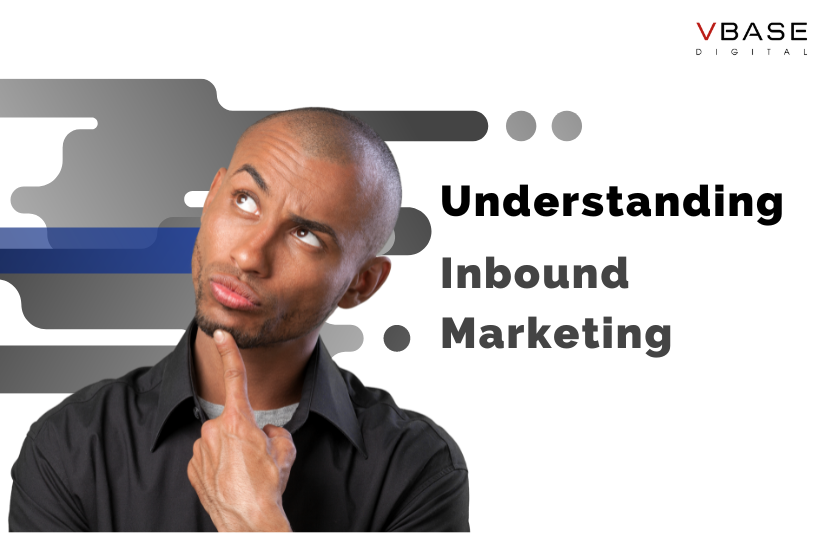
Comparison with traditional outbound marketing
Traditional outbound marketing is based on interrupting people with ads and other promotional messages. This can be done through TV commercials, print ads, cold calls, and other forms of interruption-based marketing.
In contrast, inbound marketing is based on attracting people to your business by providing them with valuable content that solves their problems. Rather than interrupting them with ads, you are providing them with something of value that they are actively seeking.
Compared to outbound marketing, inbound marketing is more effective at reaching today's consumers, who are increasingly immune to interruptive marketing tactics. By providing them with valuable content that solves their problems, you can build trust, establish your expertise, and ultimately drive more sales for your business.
Benefits of Inbound Marketing for Small Businesses
In the previous section, we discussed some keys to understanding what inbound marketing is. In this part, we will discuss its benefits, including its cost-effectiveness, ability to increase website traffic and lead generation, better customer engagement and relationship-building, and improved brand reputation and loyalty. In this section, we will dive deeper into these benefits and explore how they can specifically impact small businesses.
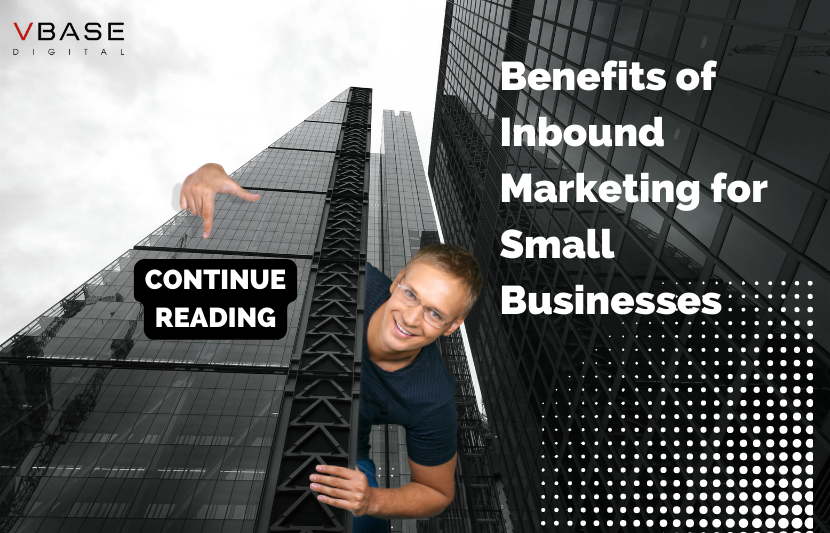
Cost-effectiveness
As I said above, unlike traditional outbound marketing methods such as print or TV ads, inbound marketing is highly cost-effective. With inbound marketing, small businesses can create and distribute valuable content to attract and engage their target audience, without having to spend a large amount of money on advertising or other marketing expenses.
Increased website traffic and lead generation
Inbound marketing strategies such as SEO, content marketing, and social media marketing can significantly increase a small business's website traffic and lead generation. By creating valuable and relevant content, small businesses can attract potential customers and provide them with the information they need to make informed decisions about their products or services.
Better customer engagement and relationship-building
Inbound marketing allows small businesses to engage with their customers in a more meaningful way, building trust and fostering long-term relationships. By providing value and helpful information through their content and social media channels, small businesses can establish themselves as thought leaders in their industry and build a loyal customer base.
Improved brand reputation and loyalty
By consistently creating high-quality content that resonates with their target audience, small businesses can improve their brand reputation and foster loyalty among their customers. When customers feel that a brand truly understands their needs and interests, they are more likely to become repeat customers and recommend the brand to others.
Developing an Inbound Marketing Strategy for Small Businesses
Now that we understand the benefits of inbound marketing for small businesses, let's take a closer look at how to develop an effective strategy:
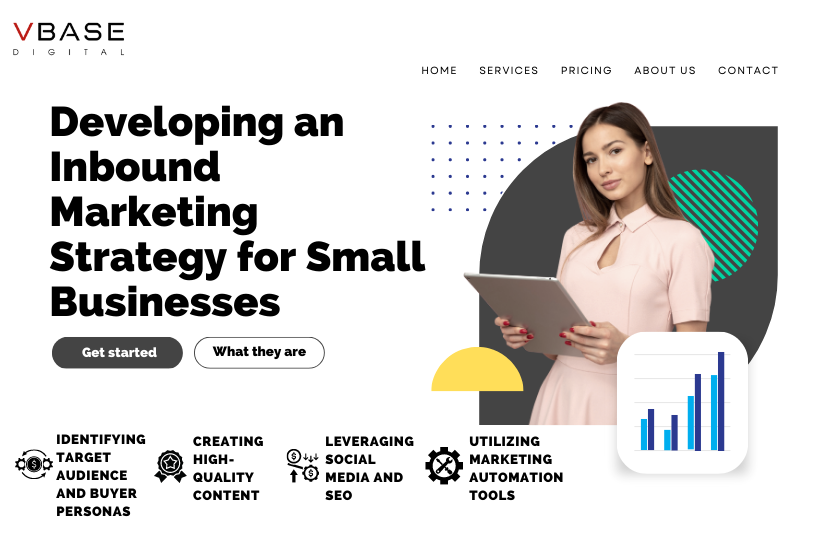
Identifying target audience and buyer personas
To create a successful inbound marketing strategy, it's crucial to identify your target audience and create detailed buyer personas. This helps to tailor your content and messaging to their specific needs, interests, and pain points.
Creating high-quality content
Inbound marketing revolves around creating and sharing valuable content that attracts, engages, and delights your target audience. This content should be informative, educational, and relevant to your audience's needs.
Leveraging social media and SEO
Social media and search engine optimization (SEO) are critical components of an effective inbound marketing strategy. Social media allows you to connect with your audience, build brand awareness, and promote your content. Meanwhile, SEO helps to drive organic traffic to your website and improve your search engine rankings.
Utilizing marketing automation tools
Inbound marketing requires a lot of time and effort, but marketing automation tools can help streamline and automate many of the processes. These tools can help with lead generation, email marketing, social media scheduling, and more. By automating some of the tasks, you can free up time to focus on creating high-quality content and engaging with your audience.
In summary, developing an inbound marketing strategy for your small business involves identifying your target audience, creating high-quality content, leveraging social media and SEO, and utilizing marketing automation tools. By implementing these strategies, you can attract, engage, and delight your audience, generate leads, and ultimately grow your business.
Inbound Marketing: vBase Digital's Advice for Small Businesses
Inbound marketing offers small businesses an effective way to attract, engage, and delight potential customers by providing valuable and relevant content that meets their needs and interests. By focusing on building long-term relationships with customers rather than just making sales, small businesses can benefit from increased brand awareness, customer loyalty, and business growth. The key is to develop a comprehensive inbound marketing strategy that includes identifying target audiences and buyer personas, creating high-quality content, leveraging social media and SEO, and utilizing marketing automation tools. By embracing inbound marketing, small businesses can level the playing field and compete with larger companies on a budget.
If you're a small business owner looking to grow your business, vBase Digital could help you to expand your area. vBase Digital provides the best digital marketing strategies and tactics tailored to your own needs, contact us for a personalized quote and a 1:1 consultation on Digital Marketing Strategy for small businesses today.